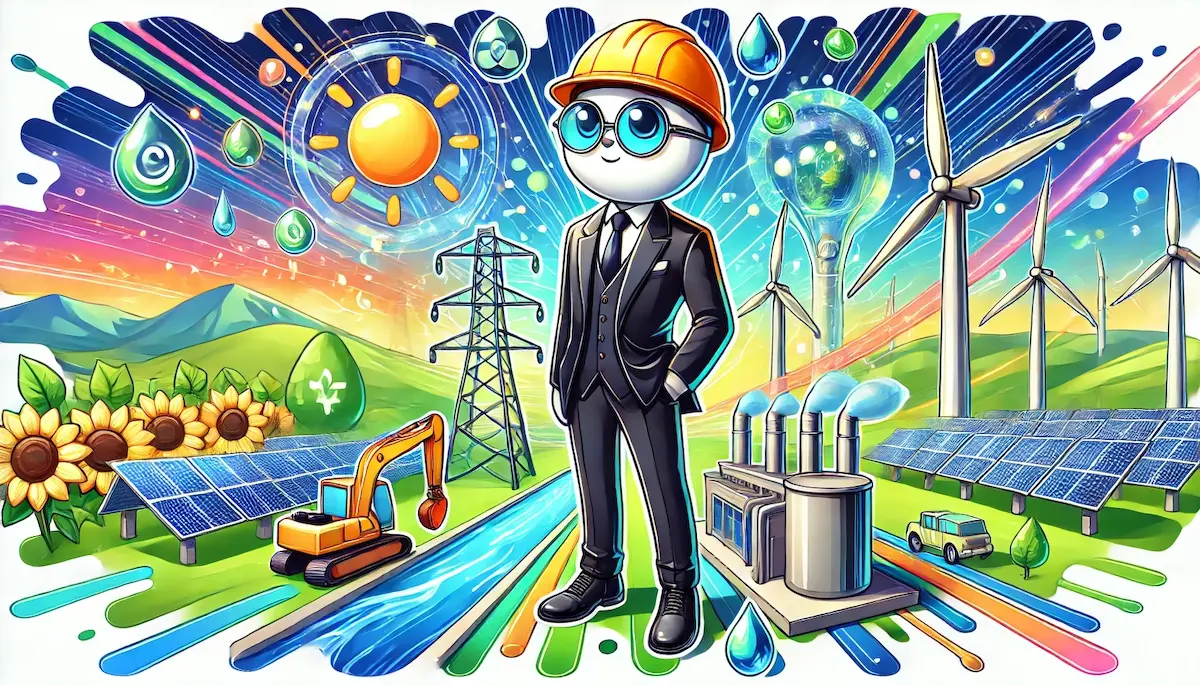Renewable energy is at the forefront of global efforts to combat climate change and reduce dependence on fossil fuels. As the world increasingly recognizes the environmental and economic benefits of sustainable energy sources, renewable energy technologies are advancing rapidly. Let’s explore what renewable energy is, its various types, and its importance in shaping a sustainable future.
What is Renewable Energy?
Renewable energy comes from natural sources that are constantly replenished. Unlike fossil fuels, which are finite and release harmful emissions when burned, renewable energy sources are sustainable and produce little to no greenhouse gases. This makes them an essential component of efforts to mitigate climate change and promote environmental health.
Types of Renewable Energy
Solar Energy
Solar energy harnesses the power of the sun through photovoltaic (PV) panels or solar thermal systems. PV panels convert sunlight directly into electricity, while solar thermal systems use sunlight to heat water or air for domestic and industrial use. Solar energy is abundant, especially in sunny regions, and can be used for a wide range of applications, from powering homes to providing electricity to entire communities.
Wind Energy
Wind energy is generated by converting the kinetic energy of wind into electricity using wind turbines. Wind farms can be located onshore or offshore, with offshore wind farms typically producing more energy due to stronger and more consistent winds. Wind energy is a rapidly growing sector, contributing significantly to the global renewable energy mix.
Hydropower
Hydropower, or hydroelectric power, uses the energy of flowing water to generate electricity. This can be done through large dams on rivers or smaller installations known as run-of-the-river systems. Hydropower is one of the oldest and most established forms of renewable energy, providing a reliable and consistent source of electricity.
Biomass Energy
Biomass energy is derived from organic materials such as plant and animal waste. This biomass can be converted into biofuels, such as ethanol and biodiesel, or used to produce electricity and heat. Biomass energy is renewable as long as the source materials are replenished sustainably, making it a versatile option for reducing reliance on fossil fuels.
Geothermal Energy
Geothermal energy harnesses the heat from within the Earth to generate electricity and provide direct heating. This energy is accessed by drilling wells to tap into hot water reservoirs or steam, which can then be used to drive turbines or provide heat for buildings. Geothermal energy is a stable and reliable source of power, especially in regions with high geothermal activity.
Benefits of Renewable Energy
Environmental Protection
Renewable energy significantly reduces greenhouse gas emissions and air pollution compared to fossil fuels. This helps mitigate climate change and improves air quality, leading to better health outcomes and a cleaner environment.
Energy Security
Renewable energy sources are abundant and locally available, reducing dependence on imported fossil fuels. This enhances energy security and reduces the risks associated with volatile global energy markets.
Economic Growth
The renewable energy sector creates jobs and stimulates economic growth. From manufacturing and installation to maintenance and research, renewable energy projects generate employment opportunities and drive technological innovation.
Sustainable Development
Renewable energy supports sustainable development by providing clean, reliable, and affordable energy. This is particularly important for rural and remote areas where access to energy can significantly improve living standards and economic opportunities.
Cost Savings
Over time, renewable energy systems can lead to significant cost savings. While the initial investment in renewable technologies may be high, the ongoing operational costs are generally low, and many systems benefit from government incentives and subsidies.
Challenges and Future Outlook
Despite its many benefits, renewable energy faces challenges such as intermittency, high initial costs, and the need for technological advancements. However, ongoing research and development, along with supportive policies and increasing public awareness, are helping to overcome these obstacles.
The future of renewable energy looks promising, with continuous advancements in technology and growing global commitment to sustainability. As renewable energy becomes more integrated into our energy systems, it will play a crucial role in building a cleaner, healthier, and more sustainable world.
Blockfine thanks you for reading and hopes you found this article helpful.
